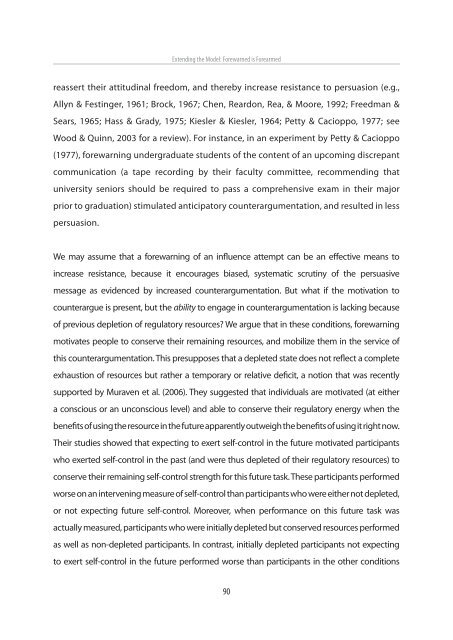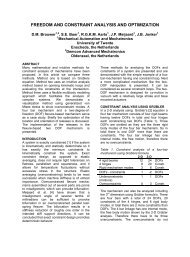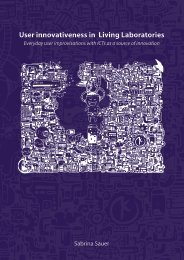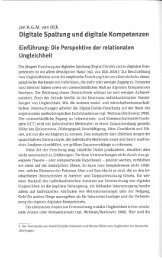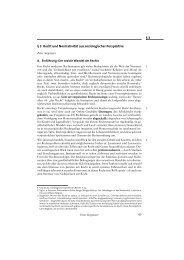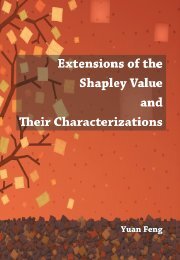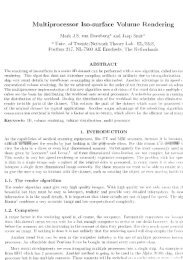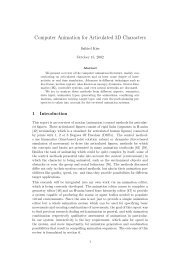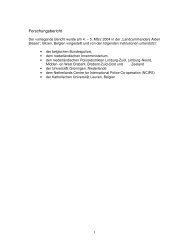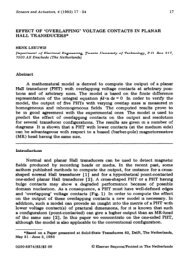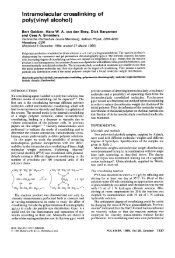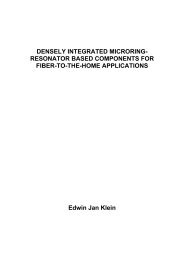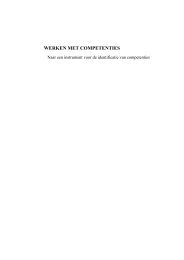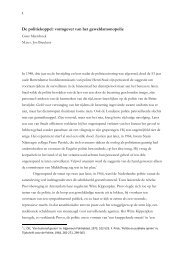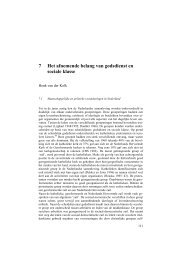Chapter 1 - Universiteit Twente
Chapter 1 - Universiteit Twente
Chapter 1 - Universiteit Twente
Create successful ePaper yourself
Turn your PDF publications into a flip-book with our unique Google optimized e-Paper software.
Extending the Model: Forewarned is Forearmed<br />
reassert their attitudinal freedom, and thereby increase resistance to persuasion (e.g.,<br />
Allyn & Festinger, 1961; Brock, 1967; Chen, Reardon, Rea, & Moore, 1992; Freedman &<br />
Sears, 1965; Hass & Grady, 1975; Kiesler & Kiesler, 1964; Petty & Cacioppo, 1977; see<br />
Wood & Quinn, 2003 for a review). For instance, in an experiment by Petty & Cacioppo<br />
(1977), forewarning undergraduate students of the content of an upcoming discrepant<br />
communication (a tape recording by their faculty committee, recommending that<br />
university seniors should be required to pass a comprehensive exam in their major<br />
prior to graduation) stimulated anticipatory counterargumentation, and resulted in less<br />
persuasion.<br />
We may assume that a forewarning of an influence attempt can be an effective means to<br />
increase resistance, because it encourages biased, systematic scrutiny of the persuasive<br />
message as evidenced by increased counterargumentation. But what if the motivation to<br />
counterargue is present, but the ability to engage in counterargumentation is lacking because<br />
of previous depletion of regulatory resources? We argue that in these conditions, forewarning<br />
motivates people to conserve their remaining resources, and mobilize them in the service of<br />
this counterargumentation. This presupposes that a depleted state does not reflect a complete<br />
exhaustion of resources but rather a temporary or relative deficit, a notion that was recently<br />
supported by Muraven et al. (2006). They suggested that individuals are motivated (at either<br />
a conscious or an unconscious level) and able to conserve their regulatory energy when the<br />
benefits of using the resource in the future apparently outweigh the benefits of using it right now.<br />
Their studies showed that expecting to exert self-control in the future motivated participants<br />
who exerted self-control in the past (and were thus depleted of their regulatory resources) to<br />
conserve their remaining self-control strength for this future task. These participants performed<br />
worse on an intervening measure of self-control than participants who were either not depleted,<br />
or not expecting future self-control. Moreover, when performance on this future task was<br />
actually measured, participants who were initially depleted but conserved resources performed<br />
as well as non-depleted participants. In contrast, initially depleted participants not expecting<br />
to exert self-control in the future performed worse than participants in the other conditions<br />
90


